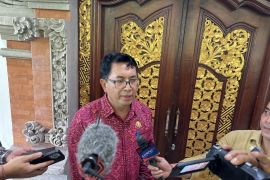Jakarta (Antara Bali)- The National Development Planning Agency (Bappenas) has claimed that the government's social security programs have successfully narrowed the social gap.
"Alhamdulillah, it gets better, among other things, thanks to the government's programs specifically for this," Bappenas Chairman Sofyan Djalil said after opening the Business Working Group here, Tuesday.
The government's interventions through programs, such as the health social security programs or BPJS Health, cash transfer for the poor, and low-interest business credits have benefited communities from the lower-income group and have helped to increase their earnings, he noted.
In the meantime, Suryamin, chief of the Central Bureau of Statistics, stated here on Monday that the income gap of Indonesian people had shrunk, marked by a 0.40 gini ratio in September 2015, down 0.01 points from 0.41 in March 2015.
"It means there has been an improvement in income distribution," he remarked at a press conference.
Gini ratio is an indicator measuring the gap in the community's income distribution. It is measured on a scale of zero to one, with the higher the gini ratio, wider the gap.
Suryamin said various factors had contributed to the improvement in income distribution, including an increase in the farm workers' wages by 1.21 percent from March to September 2015 and a hike in the wages of construction workers during the same period.
According to the National Work Force Survey data, the number of freelance workers in the agricultural and non-agricultural sectors increased from 11.9 million in February 2015 to 12.5 million in August 2015. (WDY)









